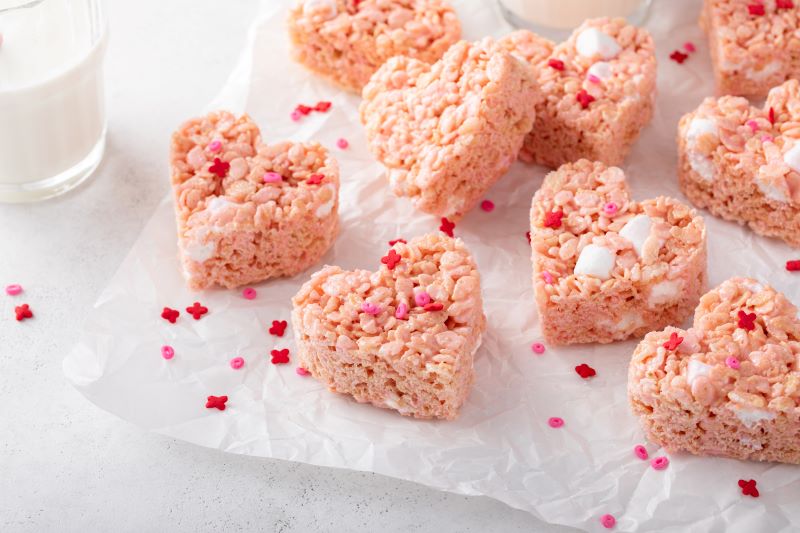If You Care Parchment Baking Paper 70 sq. ft. Description
-
FSC® Certified / Certified Compostable Unbleached Totally Chlorine-Free (TCF)
-
Ideal for the Environment & All Your Baking Needs
-
70 sq ft (65 ft x 13 in) - 6.5 sq m (19.8 m x 33 cm)
-
2005 Outstanding Non-Food Specialty Item
-
Kosher
-
Cruelty Free
Why Use If You Care FSC® & Compostable Certified Unbleached TCF Parchment Baking Paper?
• Each year more than 30 million acres of natural forests are destroyed by illegal logging and land clearance.
• The Forest Stewardship Council (FSC) promotes responsible forest management through a rigorous certification system of forests and forest products.
• When you buy If You Care FSC Certified Parchment Baking Paper you know that the paper is from forests that comply with the most rigorous environmental and social standards.
• Every year about 80 million tons of waste (U.S. EPA figure) that goes to U.S. landfills is material which could be turned into compost under the right conditions.
• In landfills, this organic material (food scraps, etc.) releases methane — a powerful greenhouse gas — contributes significantly to preserving out planet and natural resources.
• If You Care Certified Compostable Parchment Baking Paper is certified for municipal or commercial composting as well as for backyard or home composting.
• If You Care Parchment Baking Paper is made from unbleached totally chlorine-free (TCF) paper. Since no chlorine or chlorine derivatives are used to produce our papers, no chlorine or chlorine derivatives get dump into our lakes, rivers or streams.
Directions
Ideal for Baking & Cooking
If You Care FSC Certified Unbleached Parchment Baking Paper is perfect for baking and cooking. No greasing is necessary, sparing additional fat and calories, while saving time. This paper won't affect the taste of bake goods. It is microwave safe and oven proof up to 420°F/220°C. Roll is sufficient for 50 to 70 sheets. Sheets can be re-used.
Free Of
Chlorine, plastic, and animal testing.
*These statements have not been evaluated by the Food and Drug Administration. This product is not intended to diagnose, treat, cure, or prevent any disease.
Ingredients: Materials: Parchment: From FSC certified forests, unbleached totally chlorine (TCF), silicone coated - derived from silicon found in sand/quartz/rock/. Board: recycled proseed chlorine free (PCF)
The product you receive may contain additional details or differ from what is shown on this page, or the product may have additional information revealed by partially peeling back the label. We recommend you reference the complete information included with your product before consumption and do not rely solely on the details shown on this page. For more information, please see our
full disclaimer.
Reviews
View printable version
Print Page
Be My Valentine Rice Crispy Treats (Vegan!)
[vc_row][vc_column][vc_column_text]Dive headlong into these love-infused vegan rice crispy treats, designed for a sweet celebration with your valentine. Crafted from the magic of plant-based ingredients, these gorgeously gooey goodies are as flexible as your go-to cookie cutters. Cut them into shapes that resonate with your heart's whimsy, and savor the crispy-chewy joy. They’re a sweet little treat that'll have your valentine captivated.

Be My Valentine Rice Crispy Treats (Vegan!)

- 6 Tbsp. vegan butter
- 1 bag plus 1/2 cup (15 oz.) Dandies Vegan Mini Marshmallows
- 5-6 drops red food coloring
- ½ tsp. pure vanilla extract
- Pinch sea salt
- 5 cups crispy rice cereal
- 1 jar (3 oz.) colorful sprinkles
- Prepare 8x8-inch baking dish with parchment paper leaving 2-inch overhang on all sides.
- In large pot, melt butter over medium-low heat. Once butter stops foaming, add package of marshmallows (leaving remaining ½ cup for later) and continue to cook, stirring constantly, until fully melted.
- Remove pot from heat and stir in food coloring, vanilla and salt until mostly uniform.
- Add cereal, remaining ½ cup marshmallows and sprinkles, reserving some for top, and fold until well combined. (Note: Don’t worry if there are still globs of melted marshmallow.)
- Transfer mixture to prepared baking dish and press into even layer. If desired, add more sprinkles to top and gently press to adhere. Cool to room temperature, about 1 hour.
- Remove treats from pan by lifting parchment paper. Slice into squares or use cookie cutters to make shapes.
Sweet on these pretty treats? Get the ingredients to make this recipe!

[/vc_column_text][/vc_column][/vc_row][vc_row][vc_column][vc_text_separator title="Featured Products" border_width="2"][vc_row_inner equal_height="yes" content_placement="middle" gap="35"][vc_column_inner width="1/3"][vc_single_image image="172906" img_size="full" alignment="center" onclick="custom_link" img_link_target="_blank" css=".vc_custom_1707862780975{padding-right: 7% !important;padding-left: 7% !important;}" link="https://www.vitacost.com/dandies-vegan-mini-marshmallows"][/vc_column_inner][vc_column_inner width="1/3"][vc_single_image image="172905" img_size="full" alignment="center" onclick="custom_link" img_link_target="_blank" css=".vc_custom_1707862836240{padding-right: 7% !important;padding-left: 7% !important;}" link="https://www.vitacost.com/natures-path-organic-crispy-rice-cereal"][/vc_column_inner][vc_column_inner width="1/3"][vc_single_image image="172904" img_size="full" alignment="center" onclick="custom_link" img_link_target="_blank" css=".vc_custom_1707862864131{padding-right: 7% !important;padding-left: 7% !important;}" link="https://www.vitacost.com/supernatural-sprinkle-unicorn-tracks-sprinkle"][/vc_column_inner][/vc_row_inner][/vc_column][/vc_row]







